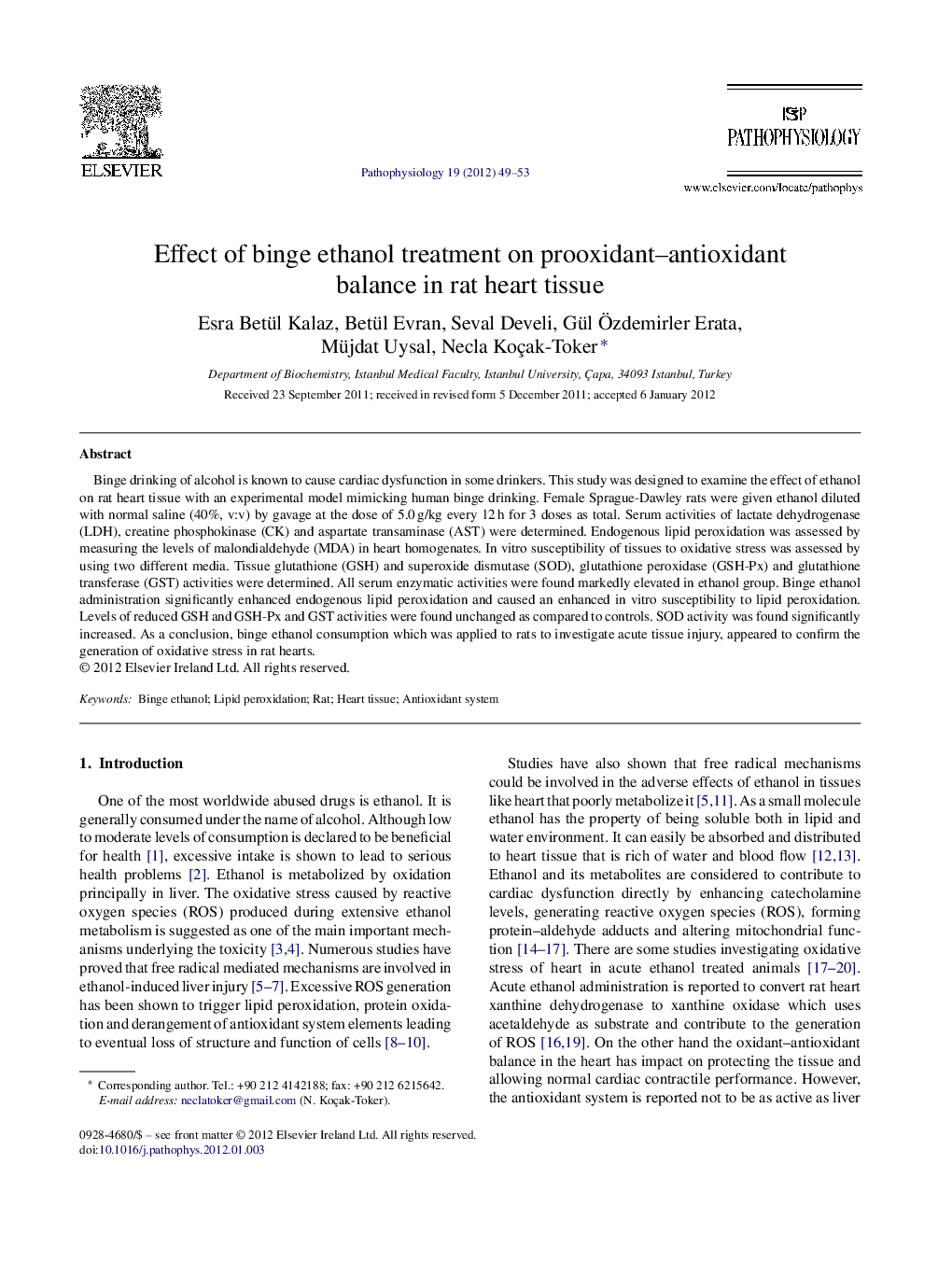| Article ID | Journal | Published Year | Pages | File Type |
|---|---|---|---|---|
| 4137094 | Pathophysiology | 2012 | 5 Pages |
Binge drinking of alcohol is known to cause cardiac dysfunction in some drinkers. This study was designed to examine the effect of ethanol on rat heart tissue with an experimental model mimicking human binge drinking. Female Sprague-Dawley rats were given ethanol diluted with normal saline (40%, v:v) by gavage at the dose of 5.0 g/kg every 12 h for 3 doses as total. Serum activities of lactate dehydrogenase (LDH), creatine phosphokinase (CK) and aspartate transaminase (AST) were determined. Endogenous lipid peroxidation was assessed by measuring the levels of malondialdehyde (MDA) in heart homogenates. In vitro susceptibility of tissues to oxidative stress was assessed by using two different media. Tissue glutathione (GSH) and superoxide dismutase (SOD), glutathione peroxidase (GSH-Px) and glutathione transferase (GST) activities were determined. All serum enzymatic activities were found markedly elevated in ethanol group. Binge ethanol administration significantly enhanced endogenous lipid peroxidation and caused an enhanced in vitro susceptibility to lipid peroxidation. Levels of reduced GSH and GSH-Px and GST activities were found unchanged as compared to controls. SOD activity was found significantly increased. As a conclusion, binge ethanol consumption which was applied to rats to investigate acute tissue injury, appeared to confirm the generation of oxidative stress in rat hearts.
► Effects of binge ethanol drinking on cardiac function are examined in female rats. ► Serum cardiac enzyme activities are elevated. ► Heart lipid peroxidation parameters are increased. ► Antioxidant system is unaffected other than increased superoxide dismutase activity.
